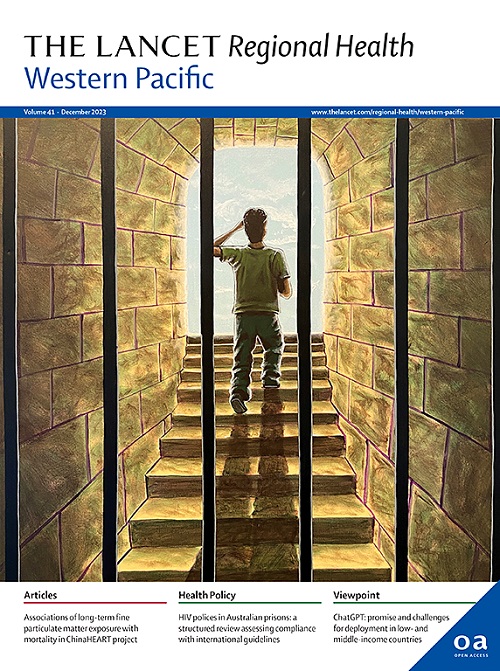Immunotherapy and its racial specificity for breast cancer treatment in Asia: a narrative review
IF 7.6
1区 医学
Q1 HEALTH CARE SCIENCES & SERVICES
引用次数: 0
Abstract
Immunotherapy, including immune checkpoint inhibitors, adoptive cell therapy, cancer vaccines, and other modalities, represents a significant advancement in cancer treatment. Breast cancer, traditionally considered less amenable to immunotherapy, has demonstrated responsiveness to immunotherapy when combined with conventional treatment options. These integrative strategies enhance the effectiveness of immunotherapy, bringing hope to patients. Furthermore, precision therapies guided by predictive biomarkers refine the scope of breast cancer immunotherapy and broaden its advantages. Notably, it is essential to recognise the differences in breast cancer epidemiology, clinical outcomes, and molecular signatures between Asian populations and those in Europe and North America. These include a higher proportion of premenopausal patients and variation in subtype distribution and gene mutation profiles, underscoring the importance of considering racial specificity in immunotherapy. Clinical efforts in Asia, supported by ethnicity-specific studies, indigenous immunotherapeutic agents, and precision medicine informed by predictive biomarkers, provide tailored treatment options. This review aims to present an overview of breast cancer immunotherapy while address the racial specificity to inform its application for Asian patients.
免疫疗法及其种族特异性治疗乳腺癌在亚洲:叙事回顾
免疫疗法,包括免疫检查点抑制剂、过继细胞疗法、癌症疫苗和其他方式,代表了癌症治疗的重大进展。乳腺癌,传统上被认为不太适合免疫治疗,当与传统治疗方案相结合时,已显示出对免疫治疗的反应。这些综合策略提高了免疫治疗的有效性,给患者带来了希望。此外,以预测性生物标志物为指导的精准治疗,细化了乳腺癌免疫治疗的范围,扩大了其优势。值得注意的是,必须认识到亚洲人群与欧洲和北美人群在乳腺癌流行病学、临床结果和分子特征方面的差异。这些因素包括绝经前患者的比例较高,亚型分布和基因突变谱的差异,强调了在免疫治疗中考虑种族特异性的重要性。亚洲的临床工作在种族特异性研究、本土免疫治疗药物和基于预测性生物标志物的精准医学的支持下,提供了量身定制的治疗方案。本综述旨在介绍乳腺癌免疫治疗的概况,同时解决种族特异性,以告知其在亚洲患者中的应用。
本文章由计算机程序翻译,如有差异,请以英文原文为准。
求助全文
约1分钟内获得全文
求助全文
来源期刊

The Lancet Regional Health: Western Pacific
Medicine-Pediatrics, Perinatology and Child Health
CiteScore
8.80
自引率
2.80%
发文量
305
审稿时长
11 weeks
期刊介绍:
The Lancet Regional Health – Western Pacific, a gold open access journal, is an integral part of The Lancet's global initiative advocating for healthcare quality and access worldwide. It aims to advance clinical practice and health policy in the Western Pacific region, contributing to enhanced health outcomes. The journal publishes high-quality original research shedding light on clinical practice and health policy in the region. It also includes reviews, commentaries, and opinion pieces covering diverse regional health topics, such as infectious diseases, non-communicable diseases, child and adolescent health, maternal and reproductive health, aging health, mental health, the health workforce and systems, and health policy.
 求助内容:
求助内容: 应助结果提醒方式:
应助结果提醒方式:


